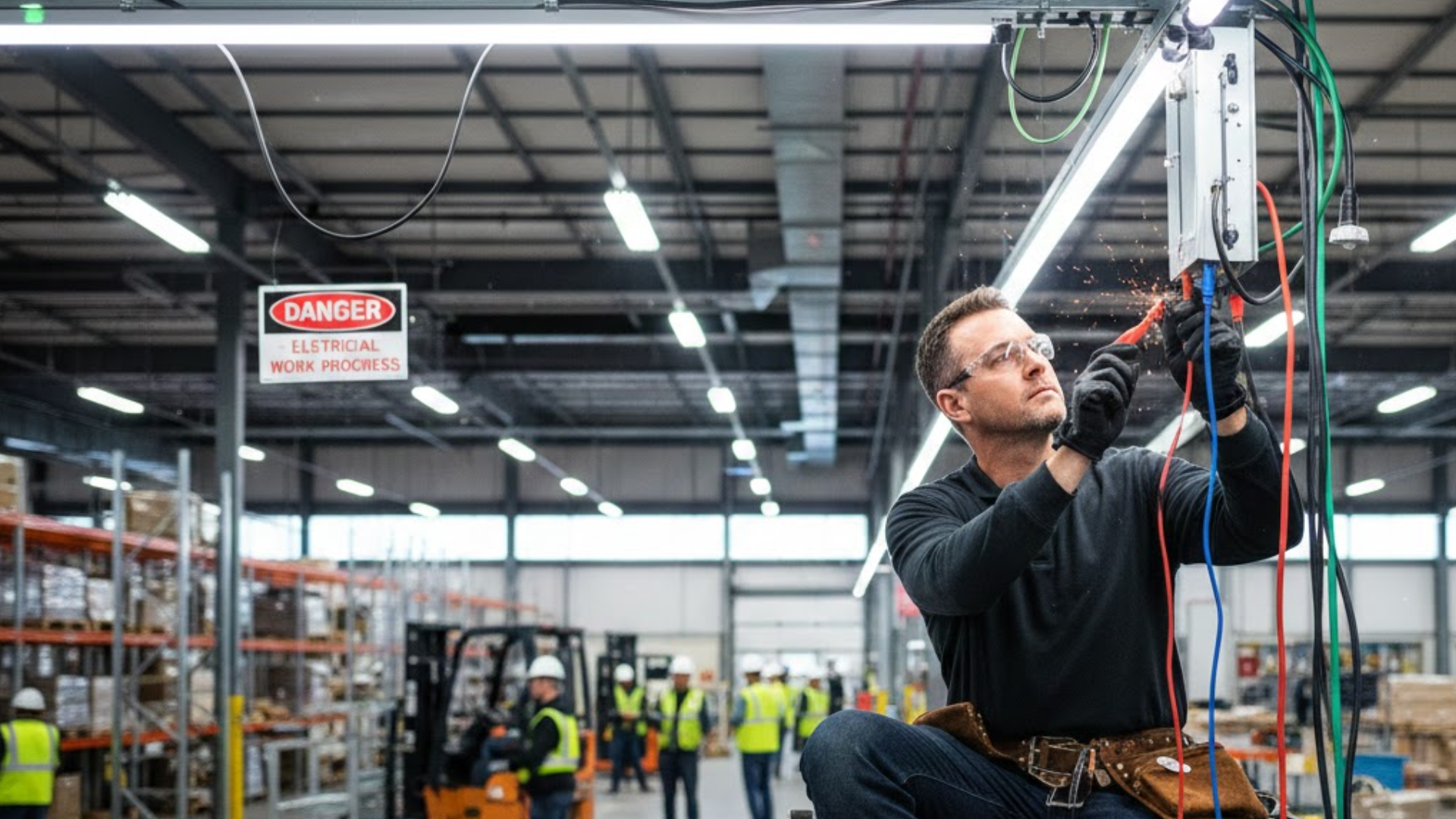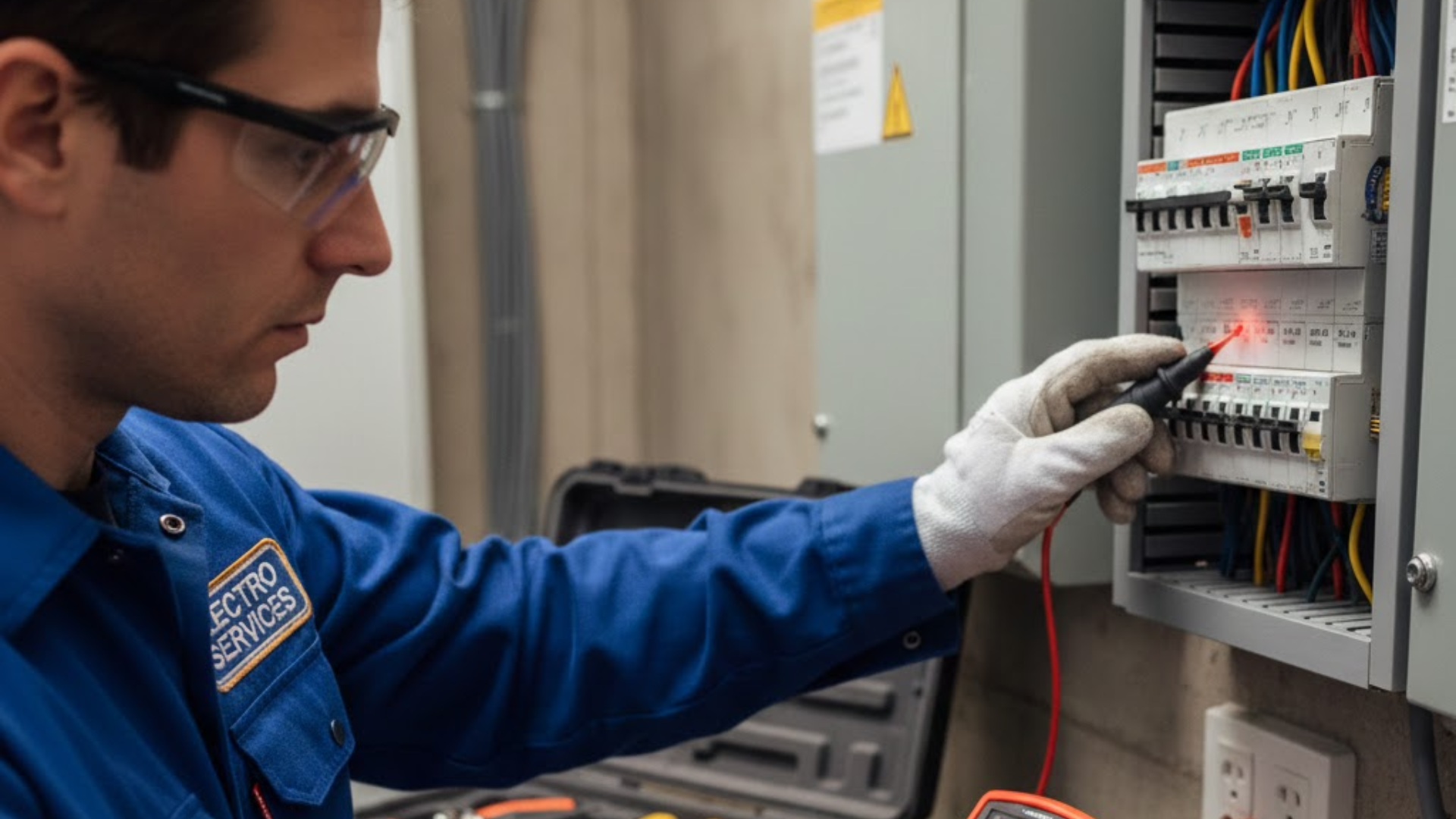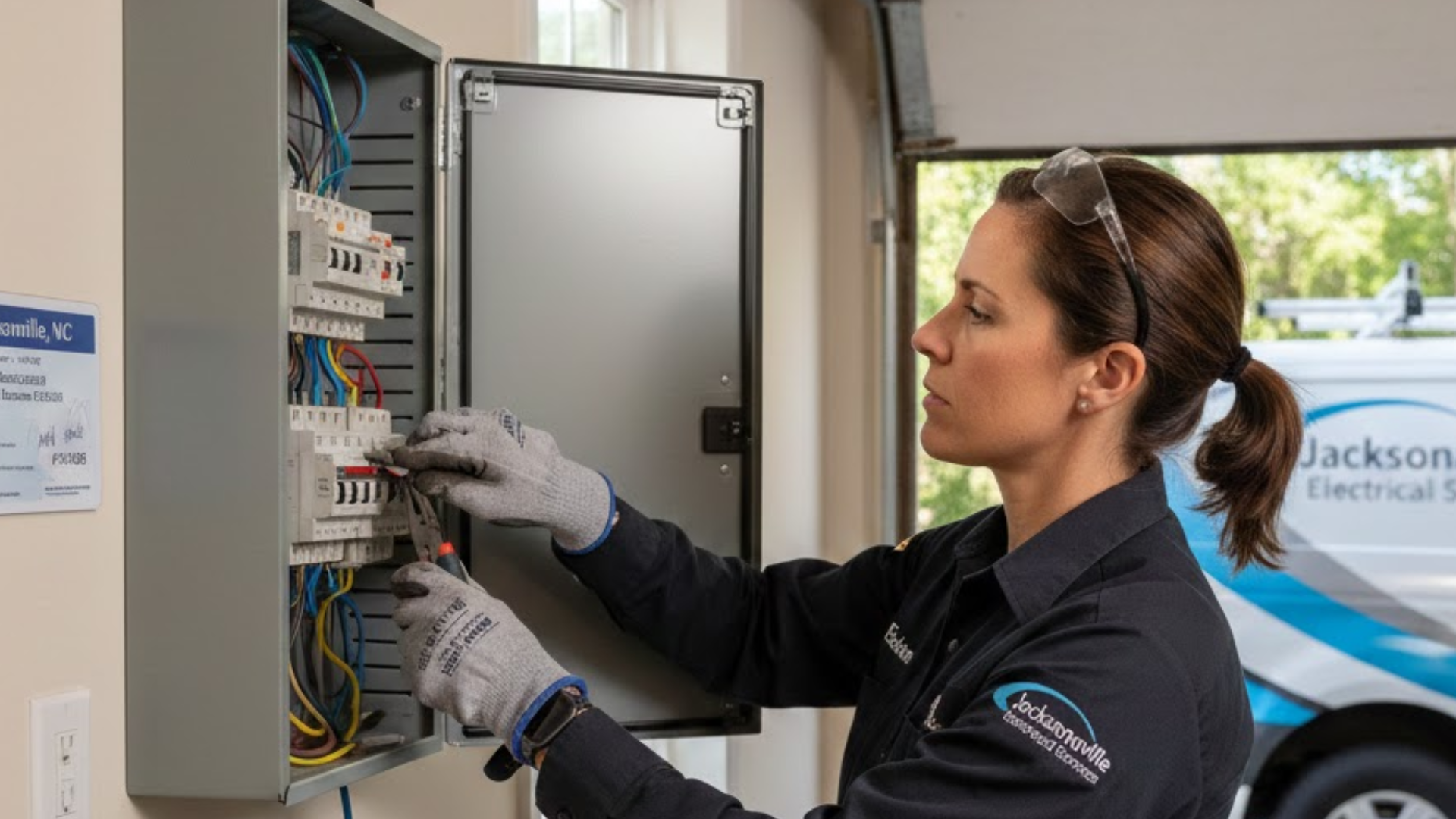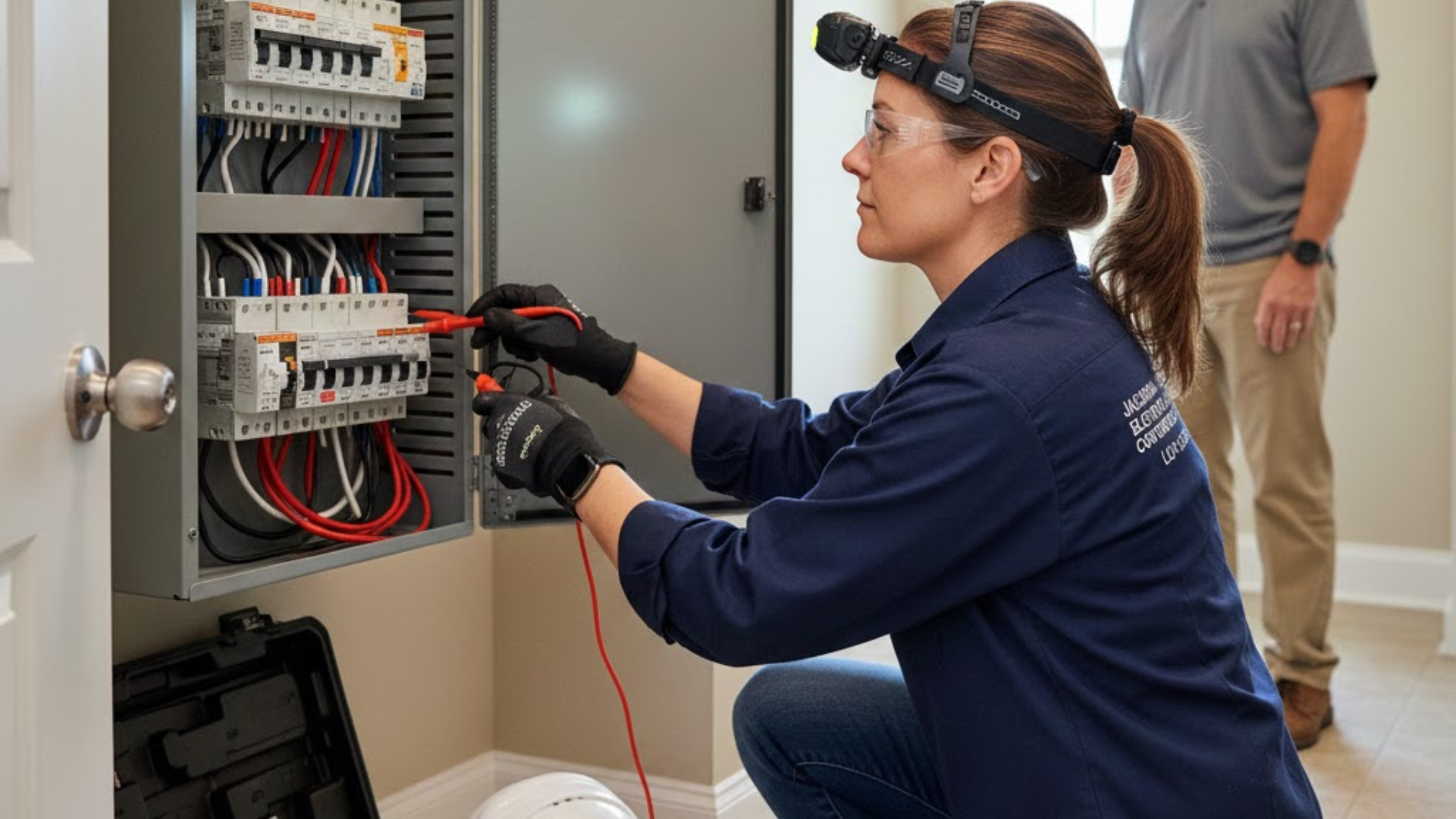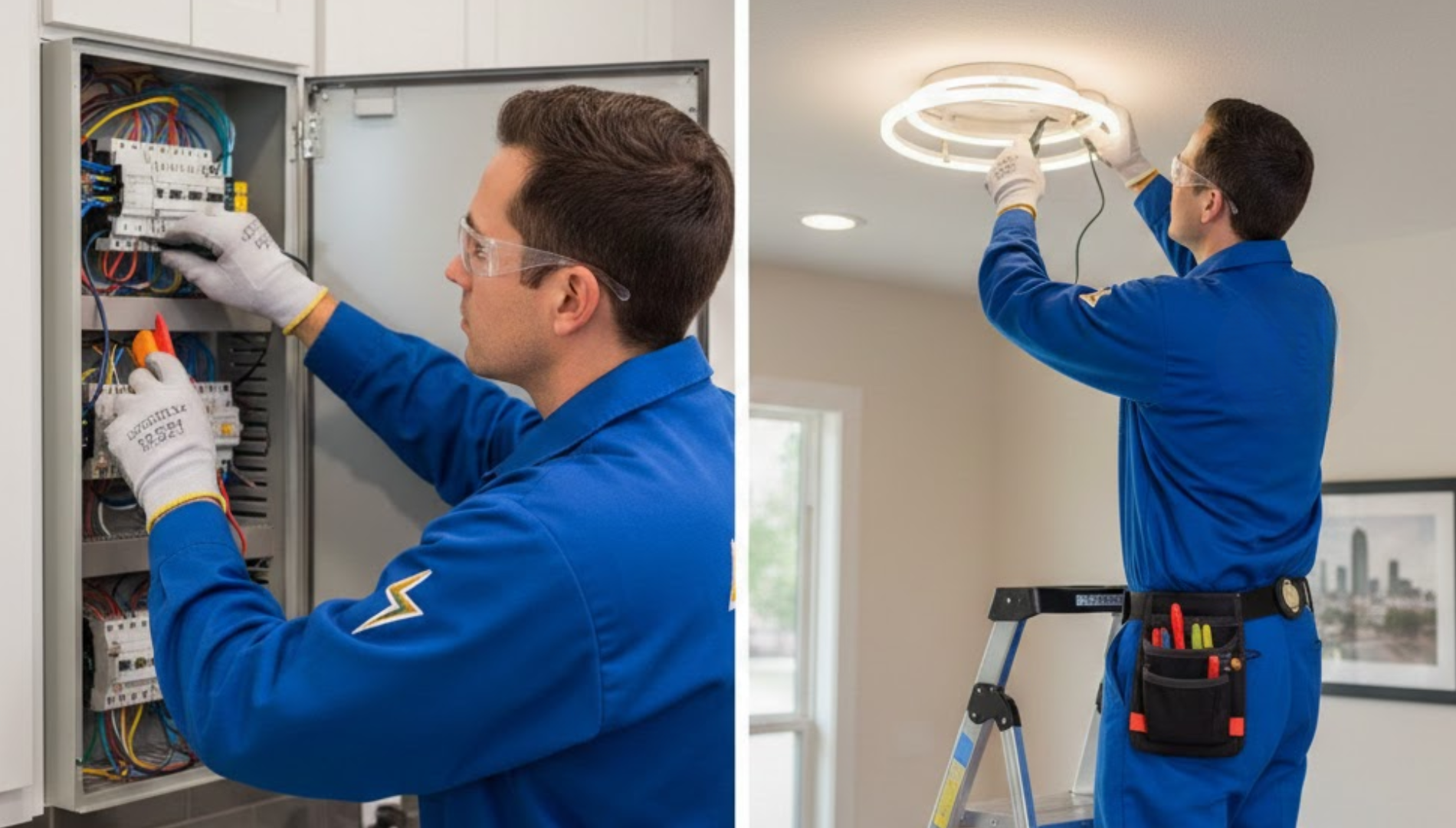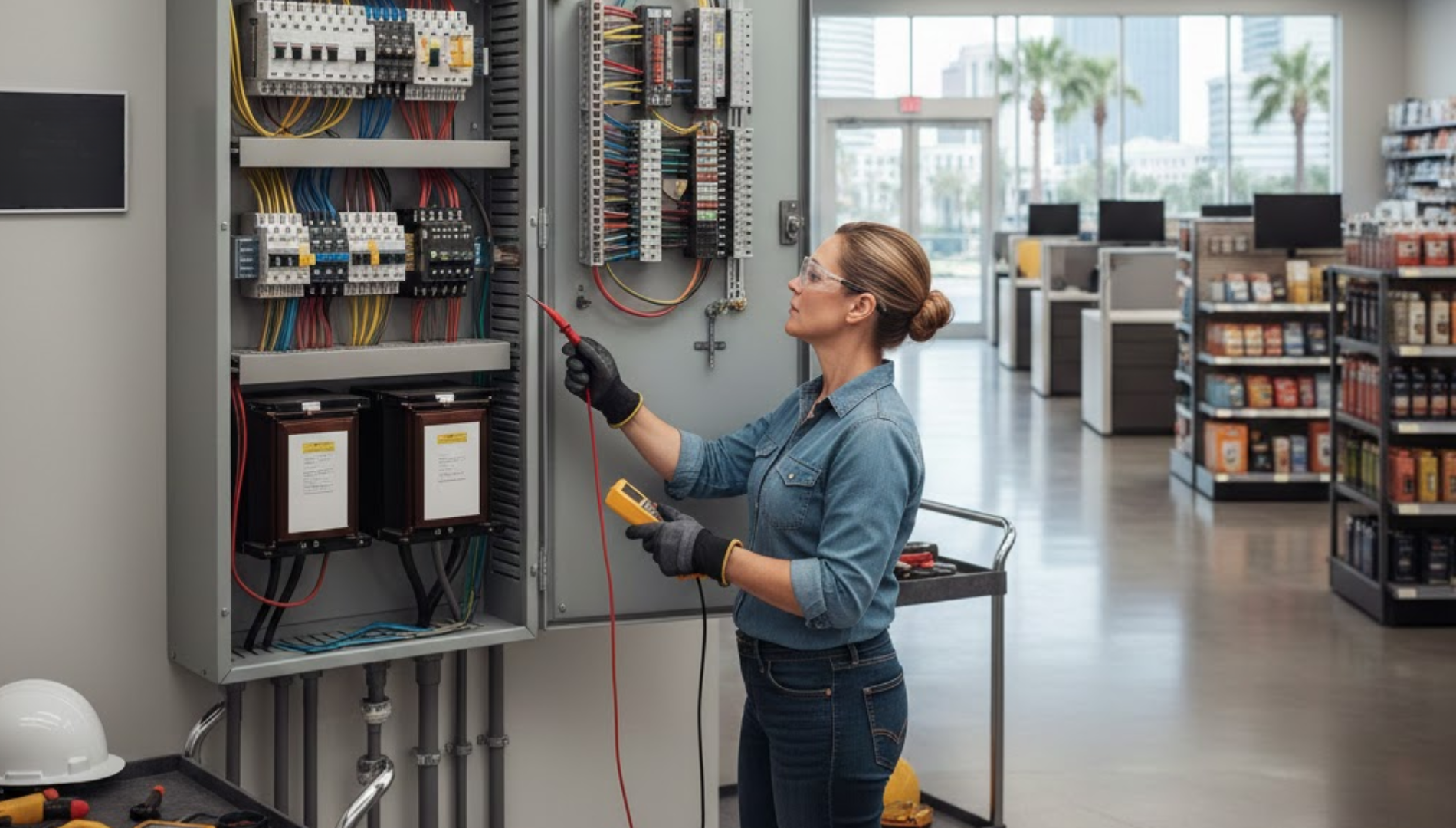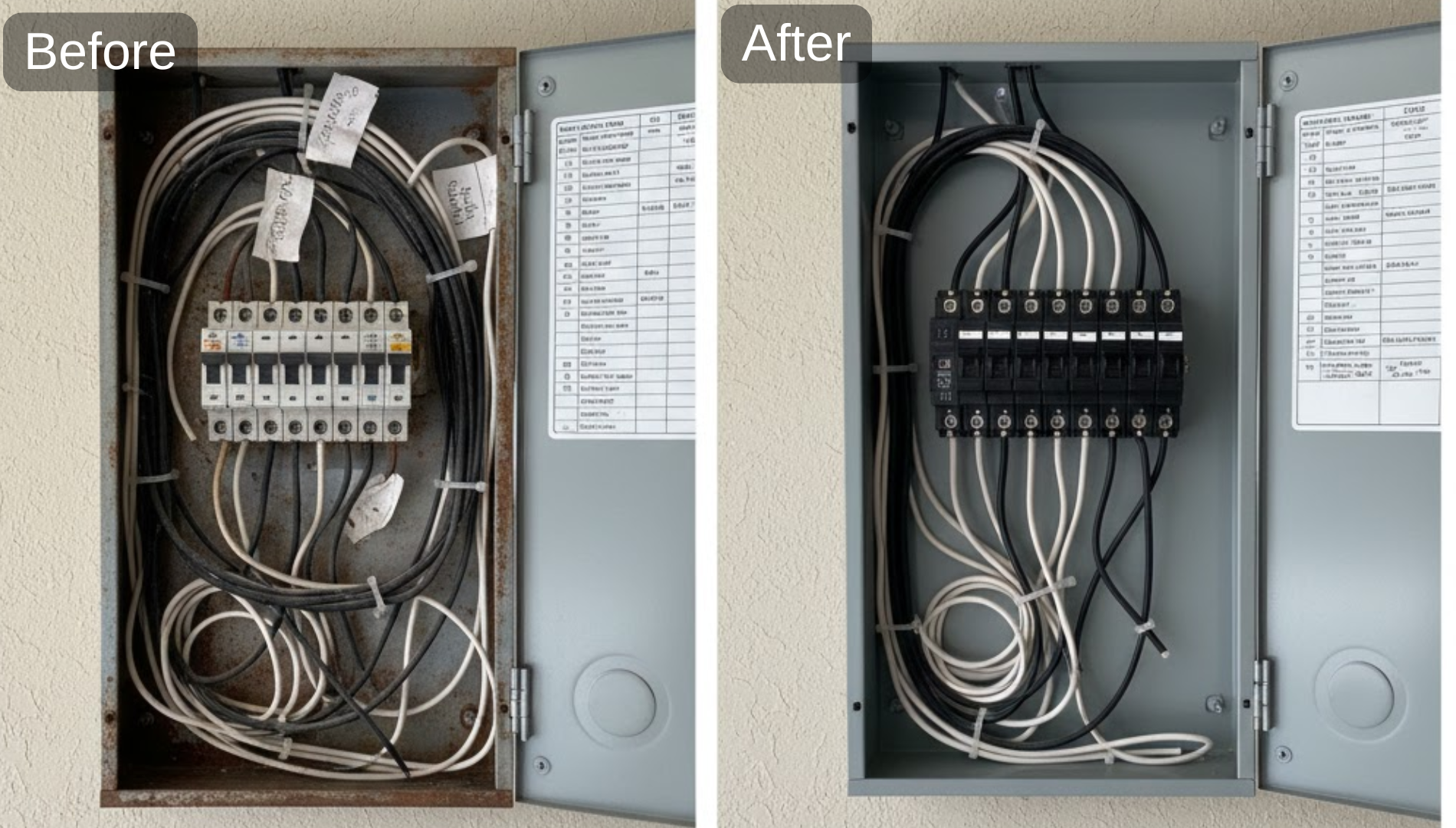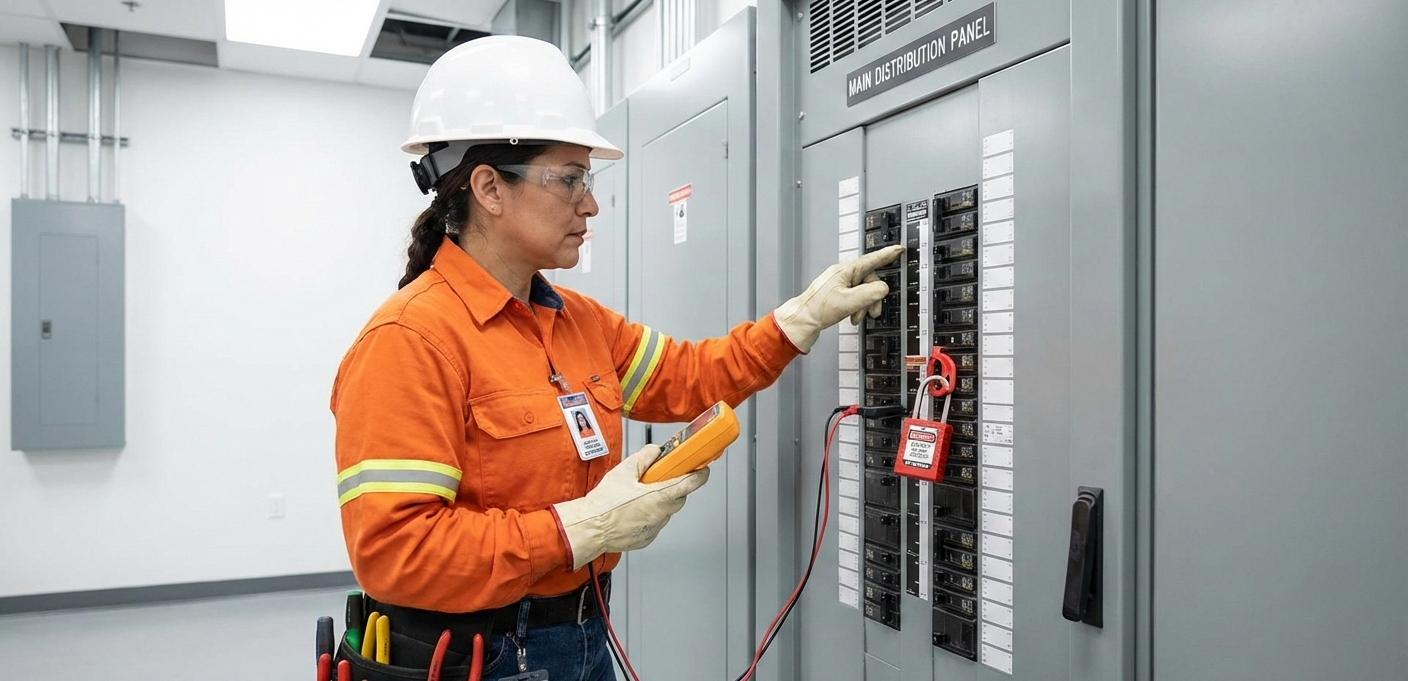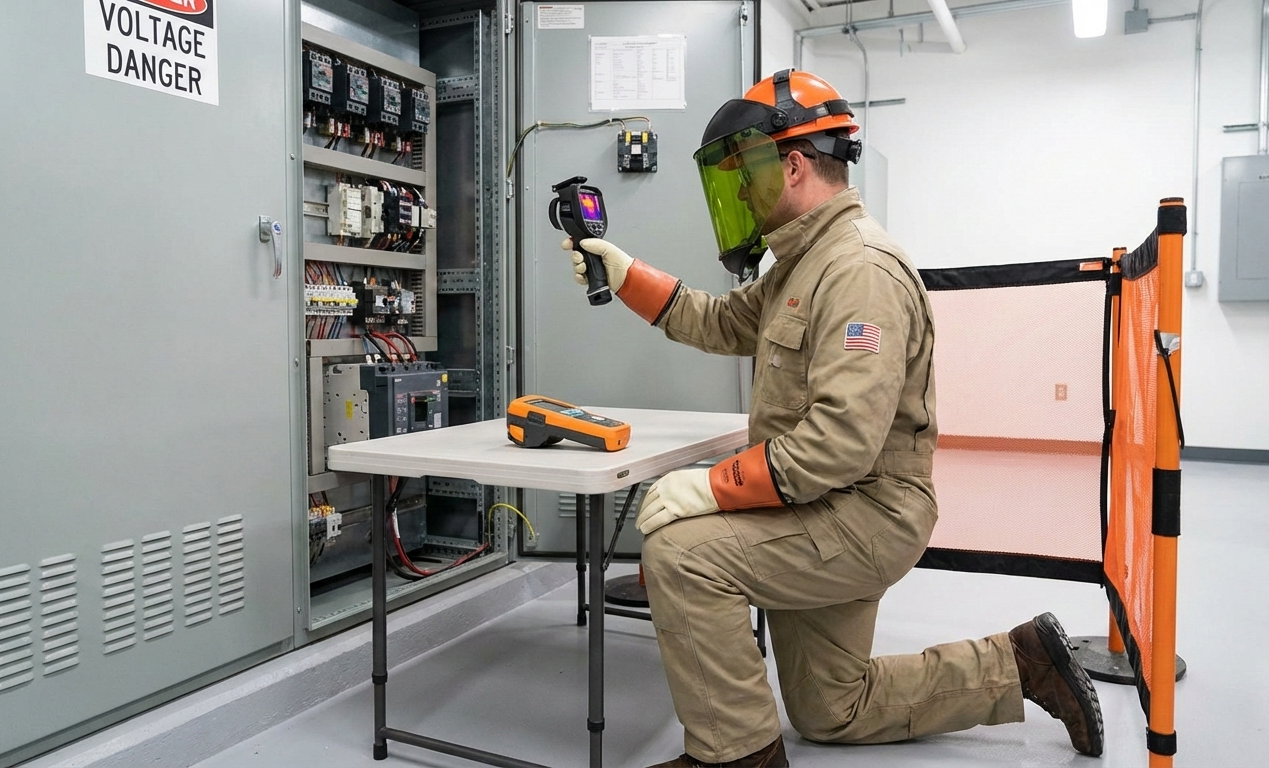Ensure Safety With Commercial Electrical Installation Tips
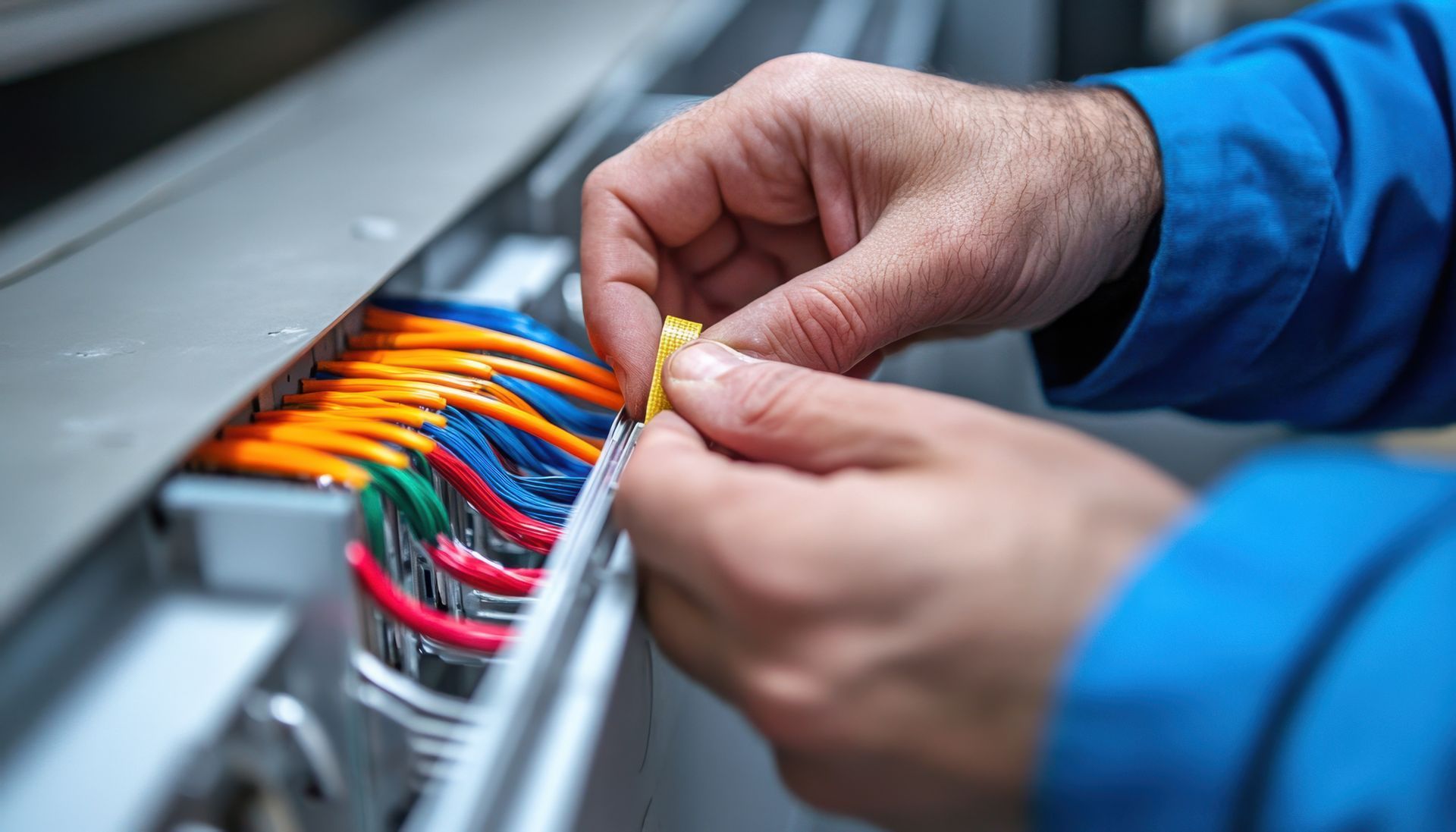
Every commercial building relies on a robust electrical installation to maintain productivity and efficiency. From powering computers and machinery to keeping lights on and security systems active, a well-designed electrical system is essential. Efficient electrical installation is not just about convenience—it’s vital for the safety of your workplace and the performance of your business. Whether you’re launching a new facility or upgrading your current setup, understanding what goes into commercial electrical installation helps you make informed decisions for your operations.
The Importance Of Commercial Electrical Installation For Businesses
Reliable commercial electrical systems are fundamental to the smooth functioning of any business. These systems power equipment, lighting, HVAC, and communication networks, supporting daily operations and long-term business growth. By investing in proper installation and maintenance, organizations minimize disruptions caused by electrical failures and optimize productivity.
A well-maintained electrical system also prioritizes safety measures, reducing the risk of accidents or hazards. Energy management systems further help businesses control costs and support sustainability, making professional installation an essential strategic investment.
Ensuring Operational Safety In Commercial Settings
Maintaining safety in commercial environments starts with rigorous adherence to safety standards throughout every stage of the electrical installation process. Businesses must comply with local codes and regulations to reduce risks, such as electrical fires or power outages, that can result from faulty installations. "Safety isn’t expensive, it’s priceless," says Mike Holmes, renowned contractor, emphasizing the critical value of strict compliance.
Workplace safety is prioritized through regular inspections, proper selection of electrical components, and installation of protective devices like circuit breakers and emergency lighting. Qualified electrical contractors ensure that every installation meets performance requirements and protects employees, customers, and assets.
Electrical failures can have severe consequences, so proactive maintenance and safety audits are standard practice. By hiring certified professionals, businesses guarantee that their electrical system remains safe, functional, and up to code—reducing liability and ensuring uninterrupted operations.
Maximizing Efficiency Through Modern Electrical Systems
Modern electrical systems are designed to maximize energy efficiency, saving businesses money and reducing environmental impact. Energy-efficient lighting, such as LED fixtures and smart control systems, is widely installed in commercial spaces to minimize energy waste while maintaining optimal illumination. These solutions can be paired with occupancy sensors and automatic timers for even greater savings.
Efficient power distribution panels help balance loads and prevent outages, especially in facilities with heavy electrical demands like factories or large offices. Regular electrical maintenance, including inspections and timely upgrades, ensures that every system operates at peak efficiency and meets evolving business needs.
Advanced HVAC systems integrated into the electrical infrastructure further contribute to energy savings. By planning for long-term efficiency, businesses gain a competitive edge and create a comfortable, productive environment. Are you looking for energy-efficient lighting and power systems? LEDs, automated controls, and smart panels are industry standards for commercial installations.
Key Differences Between Commercial And Residential Electrical Installations
Business owners should understand that commercial wiring and installation requirements differ significantly from residential systems. Commercial buildings require higher power capacities, more complex wiring systems, and specialized electrical components to support intensive operational needs. Commercial projects follow stricter compliance standards and involve robust equipment suited for continuous use.
Residential installations typically involve single-phase power and simpler layouts, while commercial electrical systems use three-phase power and advanced safety measures to ensure reliable and efficient performance in high-demand environments.
Distinct Wiring And Component Choices
The choice of wiring and electrical components in commercial buildings is driven by operational demands and safety requirements. Commercial wiring systems often use three-phase conductors and industrial-grade materials to handle high voltages and large electrical loads. Here are common wiring types:
- Conduit wiring: Metal or plastic conduits protect wires from damage and simplify future upgrades.
- Armored cabling: Flexible and durable, ideal for areas with heavy machinery or risk of mechanical impact.
- Low-voltage cabling: Used for security systems, access control, and communications.
- Junction boxes: Ensure safe connections and allow easy troubleshooting.
These systems enable efficient power distribution and minimize risks associated with electrical failures. Commercial settings also rely on specialized panels, transformers, and control equipment, chosen for their reliability and compliance with strict installation standards.
Regulatory Standards And Compliance Considerations
Compliance with local codes and national safety regulations is non-negotiable in commercial electrical installations. Licensed electricians must follow strict guidelines to ensure installations are safe and legally sound. Regulatory standards address everything from the type of wiring used to the way systems are grounded and protected.
Routine inspections and permit requirements keep businesses accountable and guarantee adherence to codes. Local authorities, insurance providers, and safety organizations often oversee these compliance measures. If businesses fail to meet regulations, they risk penalties, operational disruptions, and increased safety hazards.
Adhering to regulatory standards is a cornerstone of every commercial project. By working with certified electrical contractors, businesses safeguard their operations and reputation. Wondering what safety standards and regulations must be followed? The National Electrical Code (NEC) and local building codes set the benchmark for safe commercial installations.
Fundamental Steps In A Commercial Electrical Installation Project
A commercial electrical installation project follows a well-defined process, from initial assessment and design through final inspection and commissioning. Electrical contractors begin by understanding the business’s specific power needs, then create tailored electrical designs that ensure compliance and efficiency. The installation process includes obtaining permits, coordinating with other trades, and rigorous safety checks.
Each step is essential for delivering a reliable, safe electrical system. Let’s look at the stages that transform plans into fully functional installations to meet your business’s demands.
Initial Planning And Electrical Design
Effective electrical design starts with a detailed assessment of the building and business operations. Contractors evaluate power requirements, future expansion plans, and unique installation requirements—such as specific machinery or IT infrastructure. This initial stage focuses on calculating electrical loads to prevent overloading and accommodate growth.
Planning also involves collaboration with architects, engineers, and other trades to integrate the electrical system seamlessly. Professionals consider energy-efficient design elements, such as LED lighting and intelligent controls, to optimize long-term performance. Compliance with local codes and sustainability goals is a top priority.
The planning and design phase ensures every aspect of the commercial electrical installation supports operational needs. By addressing efficiency, safety, and future scalability, businesses lay the groundwork for reliable, cost-effective electrical systems.
Common Types Of Electrical Wiring Used In Commercial Buildings
Commercial wiring systems are carefully selected to meet complex safety and performance requirements. Conduit wiring, armored cabling, and low-voltage lines are most common, each serving specific needs such as power distribution, lighting, and security. These systems are designed to handle high electrical loads and provide robust protection against hazards.
Choosing the right wiring ensures reliable operation and supports future upgrades. Business owners should understand the benefits of each type to optimize their building’s electrical infrastructure and maintain compliance.
Advantages Of Conduit Wiring Systems
Conduit wiring is the backbone of many commercial electrical installations. Metal or PVC conduits encase wires, protecting them from physical damage and environmental hazards. This method allows for organized, accessible wiring—essential for ongoing maintenance and future expansion.
- Enhanced safety: Wires are shielded from impact, moisture, and accidental contact.
- Flexible upgrades: Conduits simplify rewiring or adding new circuits.
- Efficient power distribution: Supports high-load environments with robust junction boxes.
- Code compliance: Meets strict installation requirements in most commercial settings.
Conduit wiring systems are favored in offices, factories, and retail stores due to their durability and ease of troubleshooting. Their design supports efficient power distribution and reduces the risk of electrical failures, making them a smart choice for busy businesses.
Use Of Armored And Low-Voltage Cabling
Armored cabling provides critical protection in commercial environments with high risk of physical wear. These cables are wrapped in a flexible metal sheath, shielding them from impact, rodents, and abrasion—especially where machinery or frequent movement occurs. Armored cabling is ideal for industrial facilities, manufacturing plants, and areas requiring enhanced safety.
Low-voltage cabling powers security systems, access controls, and surveillance cameras. These cables are designed for low-power applications and enable easy integration of modern electrical installation services. By separating high- and low-voltage systems, businesses ensure reliable operation and compliance with safety standards.
Professional electrical contractors install both armored and low-voltage cabling to meet specific industry requirements. Wondering which wiring types are best for commercial buildings? Conduit protects main circuits, armored cable safeguards critical systems, and low voltage supports security and communications.
Essential Safety Standards In Commercial Electrical Installations
Strict safety standards underpin every commercial electrical installation. National Electrical Code (NEC) guidelines and local regulations dictate installation methods, component choices, and workplace safety protocols. Businesses are required to maintain safe electrical systems and conduct regular inspections to prevent hazards.
Adherence to these standards protects employees, clients, and assets. Commercial electricians follow best practices for fire alarms, emergency lighting, and risk management, ensuring every installation meets or exceeds industry benchmarks for safety and compliance. See more on Planning Your Commercial Electrical Installation: Top Guide.
Adherence To National Electrical Code (NEC) Guidelines
Strict adherence to National Electrical Code (NEC) guidelines is crucial for ensuring the safety and effectiveness of commercial electrical installation. These guidelines provide standardized protocols for commercial wiring, guaranteeing that electrical systems meet safety regulations and performance requirements. By following NEC standards, electrical contractors can reduce the risk of electrical failures while ensuring the longevity of electrical components like circuit breakers and electrical panels. Meeting these regulations not only safeguards occupants but also enhances operational efficiency in commercial buildings.
Workplace Safety Protocols For Electricians
Electricians working on commercial projects abide by rigorous safety protocols to protect themselves and others. Regular electrical maintenance is paired with proper use of personal protective equipment (PPE), such as insulated gloves and safety glasses. Emergency lighting and fire alarm systems are integral to workplace safety.
- PPE at all times: Insulated gloves, eye protection, hard hats
- Clear labeling: Circuits and panels marked for easy identification
- Safe work zones: Well-lit, unobstructed areas to reduce accidents
- Routine inspections: Early identification of hazards and prompt repairs
Safety measures extend to ongoing training in risk prevention and emergency response. Strict adherence to safety protocols ensures every electrical installation is completed without incident, safeguarding both employees and building occupants.
Nash Electric LLC’s Approach To Installation And Safety In Jacksonville, NC
Nash Electric LLC stands out in Jacksonville, North Carolina, as a trusted provider of professional commercial electrical installation services. Their team of certified electrical contractors specializes in tailored installation processes, focusing on specific needs and local compliance standards. Nash Electric LLC’s commitment to safety measures ensures every project meets the highest benchmarks for operational reliability and protection.
Businesses benefit from Nash Electric LLC’s expertise in planning, installation, and maintenance. Their client-focused approach delivers efficient power distribution, secure environments, and scalable solutions for growing enterprises. When choosing a qualified commercial contractor in Jacksonville, Nash Electric LLC’s reputation for excellence and safety makes them the top choice.
Conclusion
Commercial electrical installation is vital for enhancing safety and efficiency in business environments. With the right systems in place, businesses can ensure operational safety while maximizing their technological capabilities. Understanding the nuances between commercial and residential installations, adhering to safety standards, and following a structured approach to installation are essential for any organization. At Nash Electric LLC, we pride ourselves on our expertise and commitment to client-focused strategies that elevate safety and efficiency. If you're ready to improve your electrical systems and prioritize safety,
get in touch with us today.


